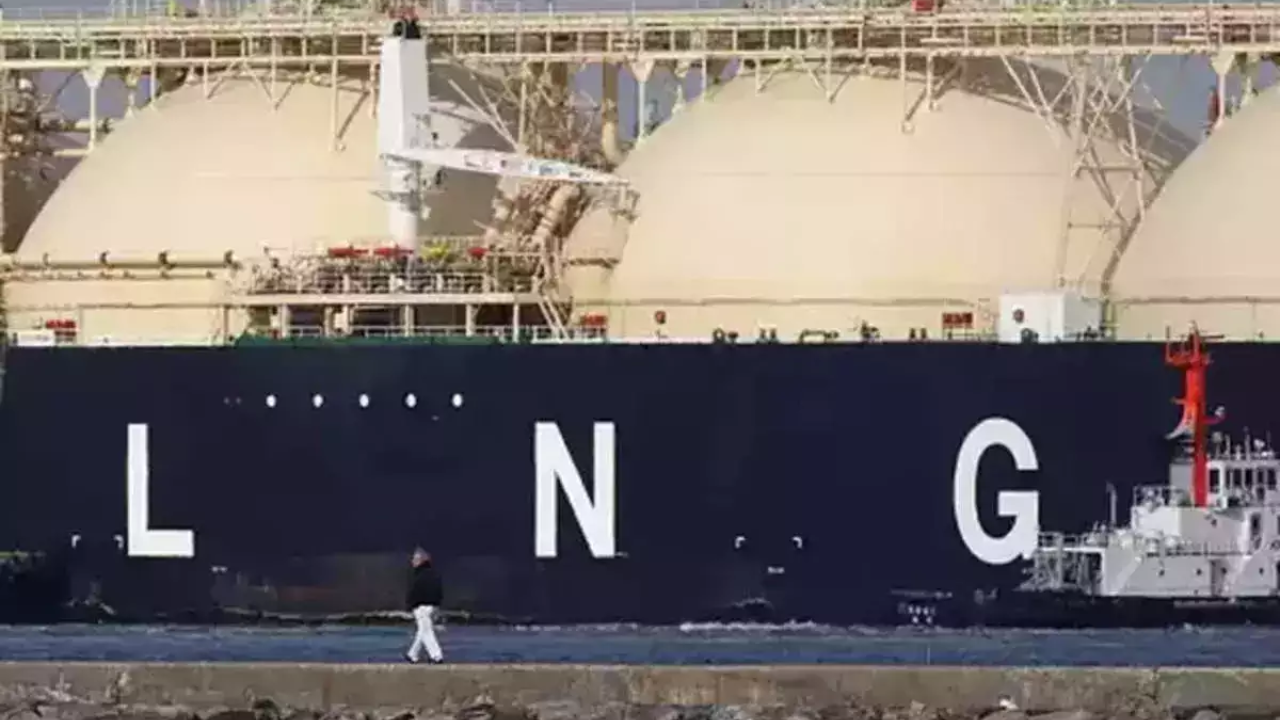India's Natural Gas Consumption Soars: A Boon or Bane for Energy Security?
India's energy landscape is undergoing a dramatic transformation, with natural gas consumption surging by an impressive 11% in 2024. This remarkable growth, fueled by rising demand across various sectors, has propelled India to become the world's fourth-largest LNG importer. While this aligns with the government's ambitious low-carbon goals, it also throws a spotlight on the country's energy security vulnerabilities.
The Meteoric Rise of India's Gas Demand
The surge in gas consumption wasn't uniform across sectors; some experienced double-digit growth, far outpacing the overall increase. Industries witnessed a whopping 22% increase, followed closely by oil refineries at 26%. Residential and commercial sectors also saw robust growth of 14%, driven by relatively lower gas prices, while the transport sector enjoyed a 12% increase. This makes clear the increasing reliance of all sectors on natural gas, and the rising importance of the issue of energy security for India.
The Power Sector's Growing Appetite
The summer's scorching heatwaves put immense pressure on power generation, causing electricity demand to skyrocket and driving a staggering 32% jump in gas consumption for electricity generation. This highlights the critical role that natural gas plays in electricity generation in India. The correlation between extreme weather events and increased gas usage makes diversifying power sources a necessity, improving energy security, and also helping curb carbon emissions and promote cleaner sources.
LNG Imports: A Double-Edged Sword
To meet the soaring demand, India's LNG imports rose by a substantial 21% year-on-year. This was largely facilitated by favorable average spot LNG prices, which were over 12% lower than the previous year. The significant increase in the number of LNG cargoes demonstrates India's commitment to this sector's success.
Navigating the Global LNG Market
The growing gas consumption has not only positioned India as an important LNG importer, attracting considerable attention from global suppliers, but has also boosted its power in negotiations. In 2024 alone, over 15 billion cubic meters (bcm) of new sales and purchase agreements were inked, showcasing India's influence in global energy markets. Long-term contracts with significant players such as Qatar, the UAE, and the United States will provide both security of supply and improve energy security and competitiveness in the long run.
Domestic Production: A Pressing Need
Despite the increase in imports, the slight decline in domestic gas production since July 2024 raises concerns about long-term energy independence. Incentivizing domestic gas production and investing heavily in exploration and production are crucial for mitigating these risks and ensuring the nation's energy security and independence. Increased investments should address these issues and help India avoid issues relating to energy security and price volatility in the years ahead.
The Push for Domestic Energy Independence
India is actively pursuing policies that aim to increase the share of natural gas in its energy mix to 15% by 2030, a significant jump from the current level of just under 7%. Initiatives like promoting Compressed Natural Gas (CNG) in city transportation and exploring the use of LNG for long-haul trucking demonstrate the government's unwavering commitment to achieving energy self-sufficiency. The need for a robust domestic natural gas sector in India and investment in production cannot be overstated.
Securing India's Energy Future
The rapid growth in India's gas consumption presents both opportunities and challenges. While the increasing demand highlights India's burgeoning economy and commitment to cleaner energy, it also underscores the pressing need to bolster domestic production, and further diversify supply sources of liquefied natural gas, to ensure robust and reliable energy security for years to come. This combination of secure supplies of LNG and an up and coming domestic production sector can significantly strengthen India's energy security position in the global economy and increase the country's attractiveness to energy related Foreign Direct Investments.
Balancing Act: Import Diversification and Domestic Boost
India's strategy focuses on a balanced approach—diversifying LNG import sources through long-term contracts with global partners, simultaneously increasing investment in and boosting domestic production. This approach offers both flexibility and security against potential supply disruptions while advancing the nation's self-sufficiency ambitions in a sustainable manner.
Take Away Points
- India's natural gas consumption is surging, driven by growth across various sectors.
- LNG imports have risen sharply to meet this growing demand.
- Increased domestic production is essential for ensuring long-term energy security.
- Diversifying LNG supply sources is crucial for mitigating risks.
- The government's ambitious targets require substantial investment in the natural gas sector.




